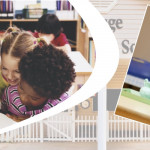file:///home/chronos/u-70a4dc17b7684debcdce7d6525208cde71a337e1/MyFiles/Downloads/30%20May%202024.docx%20(2)/30May2024.docx.html
file:///media/archive/30%20May%202024.docx.zip/30May2024.docx.html
Fostering intellectual development and independence through travel
Independence begins early in Montessori education. It begins with saying goodbye to mom or dad as a toddler and using the toilet. Letting go is never easy for parents, even when they know becoming independent is part of the growth of a child. As the child grows and develops into an independent person he is […]
Winter Break-things to do
Parents are often looking for ideas or things to do with their children during the winter break. Here we have tried to compile a list of activities that are convenient, fun, inexpensive, and support what we do in class. Keep in mind that all these activities are open ended and do not have a specific criteria […]
Peace and Education
Maria Montessori said, “education is the best weapon for peace.” It is so profound that she wrote these words over a hundred years ago: “The world’s people are disorganized, and each individual thinks only of his own immediate well-being.” How true those words are today. It is our vision at Village Montessori to build community […]
The Importance Montessori Kindergarten In Georgia Holds In Every Child’s Life

A community of people assumes kindergarten as a child’s first year of school. However, kindergarten is the third year of education for Montessori primary school students. This unique “Leadership Year,” better known as “Capstone Year,” is the fruition of the growth, exploration, and liberty your preschool-aged kid has already attained.By this moment, your child has […]
